My favourite books of 2023

I love reading! It’s one of my great joys in life that I feel really
- nourishes my soul
- gives me time out
- helps me escape reality
- takes me on journeys to new places
- broadens my understanding of others…………..
In no particular order, here are my favourites from my 2023 reads.
Kazuo Ishiguro – Klara and the Sun
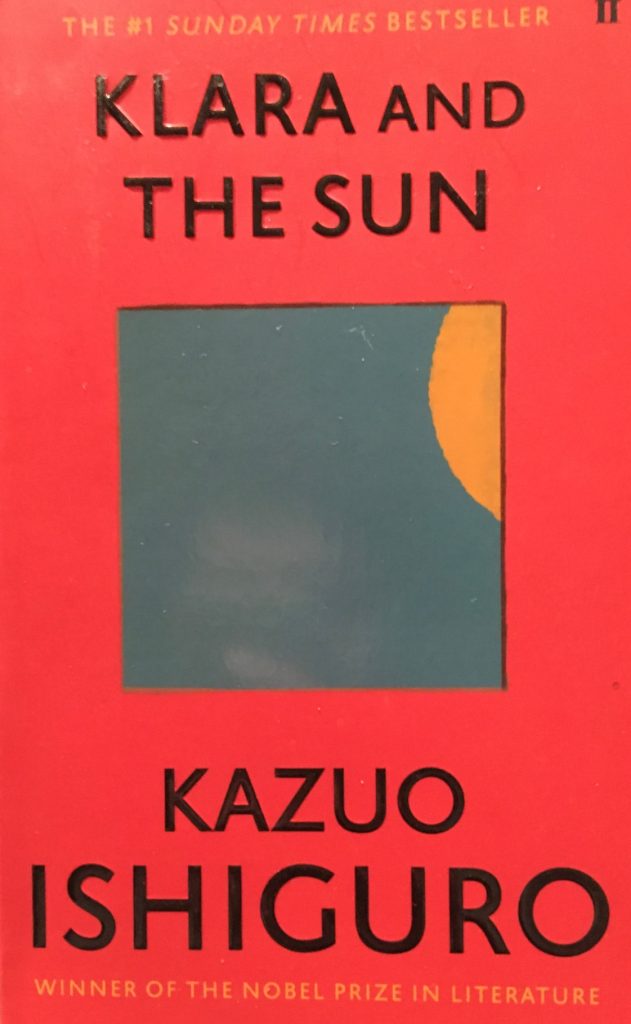
A story told from the unique perspective of a solar-powered AI life-size ‘doll’ designed to be a child’s companion, Klara makes sense of the world the best way she can – and of course develops a more sophisticated knowledge all the time (there’s plenty of the reference to ‘the black oblongs’) that people’s attention is so caught by).
We don’t know any more about the world than Klara knows, so only have glimpses of a dystopian world where children need to undergo modification to obtain success.
Hilary Mantel – Fludd
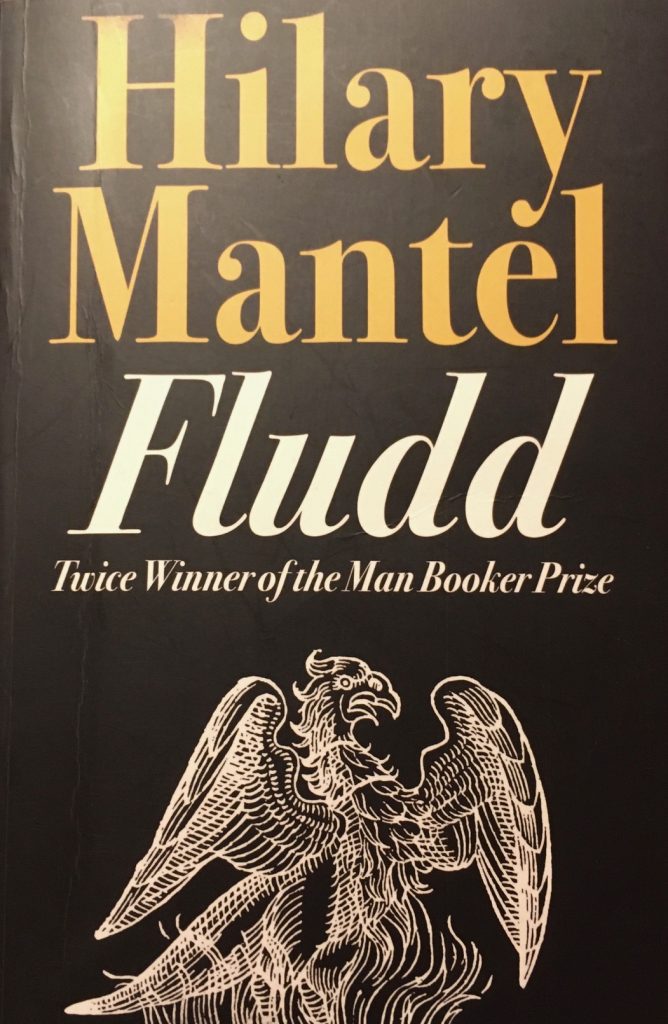
I started reading this and then said to my partner ‘this is a book we need to read to each other’ – because I knew that otherwise I would keep interrupting him to read bits out.
Set in a grim little moorland village in and around a convent and a presbytery with a host of (mostly) dysfunctional or odd characters, Fludd is dark and funny with a flavour of Stella Gibbons ‘Cold Comfort Farm’.
Michael Rosen – Many Different Kinds of Love
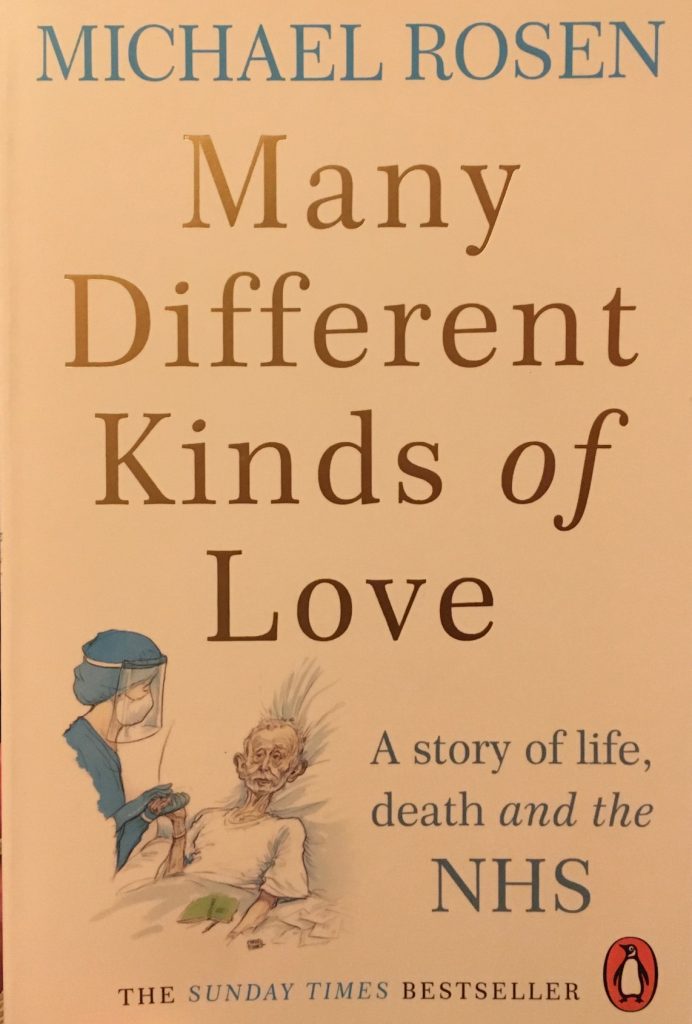
Oh…..my heart is breaking as I just think about this book, a memoir of Michael Rosen’s experience of catching Covid early in the pandemic, and being in intensive care for two months (including being put into an induced coma).
It is a beautifully moving book made up of his prose poems, excerpts from the diary kept by medical staff and emails from his wife to family members. It of course reminds us AGAIN of the incredible, normal humans who make up the NHS.
Sara Sheridan – Where are the Women?
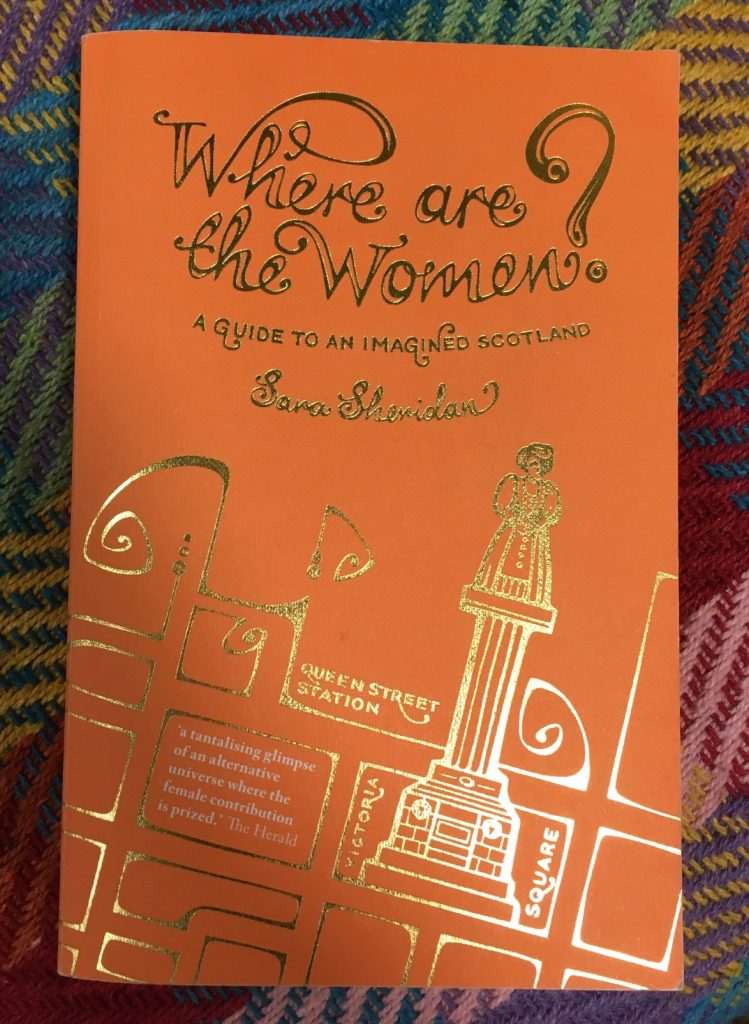
A clever tour guide to an imagined Scotland where women’s contributions to the world are prized, celebrated and memorialised to the same extent as men’s.
The book is broken up into sections for different cities or parts of the countries, and each section includes a description of the building, statue or other monument and a brief history of the (real) woman it celebrates. Some do exist (Lady Stair’s Close, Edinburgh), some have been renamed (Edinburgh castle becomes St Margaret’s Castle), some have new landmarks created for them.
A fantastic and clever route to learning more about some of the really important women in Scottish history.
S R Crockett – The Raiders
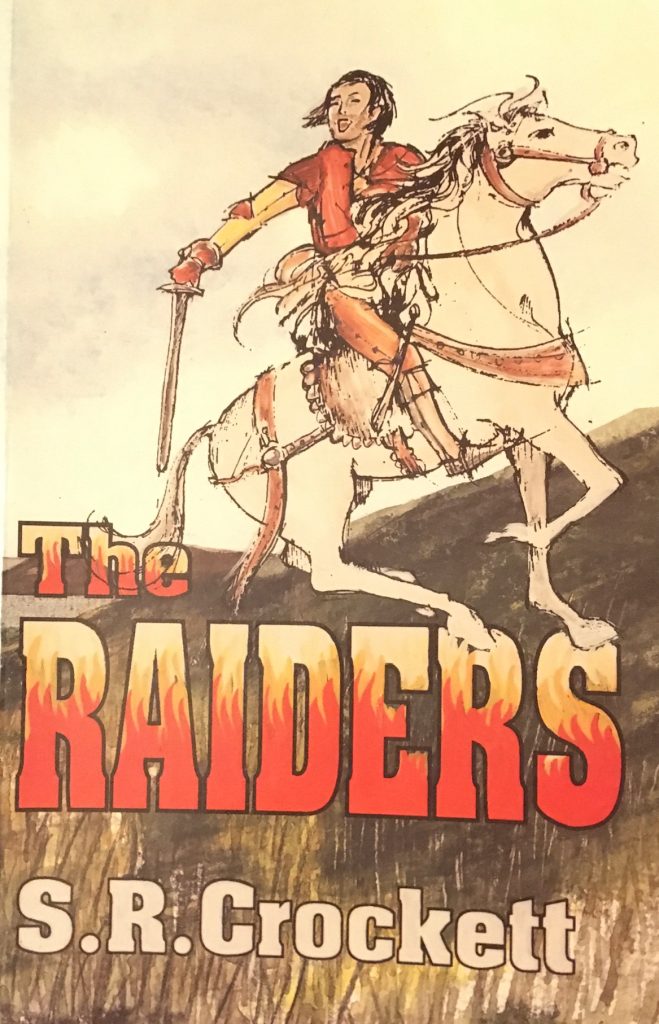
If you like a good rip-roaring, swash-buckling historical novel, this could be a book for you. Chosen for our Bookgroup weekend away in Galloway, it’s set between the Solway Coast and the wild Galloway hills and includes smugglers, outlaws and cattle-thieving.
The narrator (a man) doesn’t have a particularly high opinion of himself, and the story features plenty strong intelligent women – even though the book was published in 1893. Most of all I love how the landscape features in this book.
In May I tried to recreate the route that the narrator takes, wild camping en route – but was defeated by the terrain and infamous Galloway bog……
Steve Silberman – Neurotribes
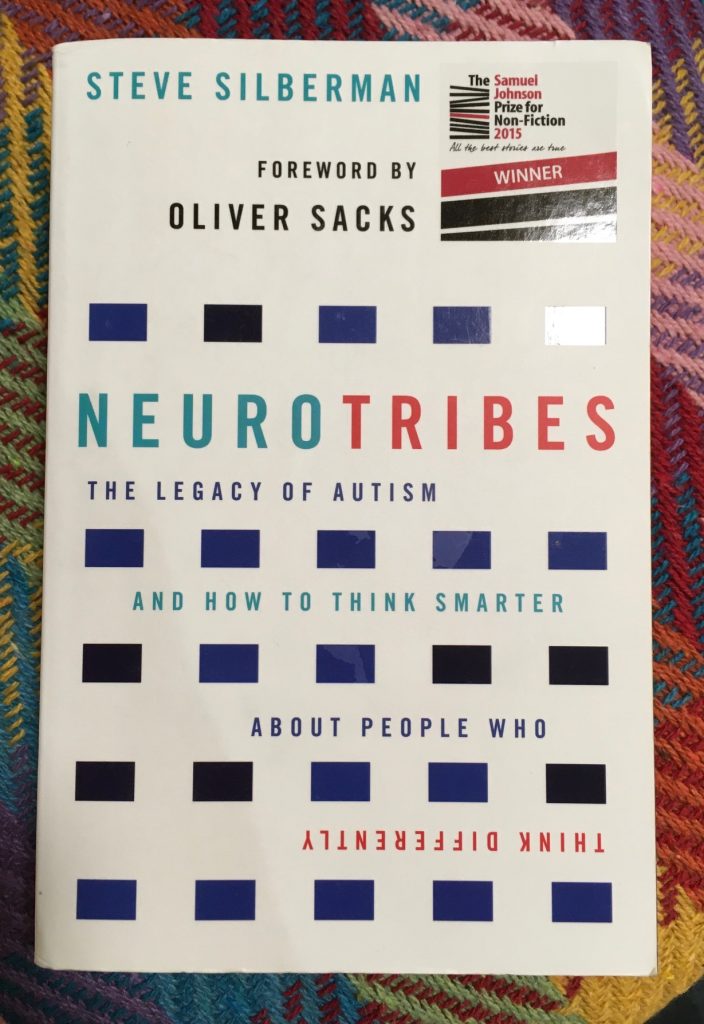
This is a fantastic and fascinating history of the neurodiversity movement; it’s a big book but an engaging and interesting read.
Silberman explores the various attempts to ‘cure’ or treat neurodiversity and how much a neurotypical viewpoint has dominated (surprise surprise), but also looks at the way forward for a society that is more humane, supportive and facilitative towards people who learn and process in all our different ways.
Honoree Fanonne Jeffers – The Love Songs of WEB Du Bois
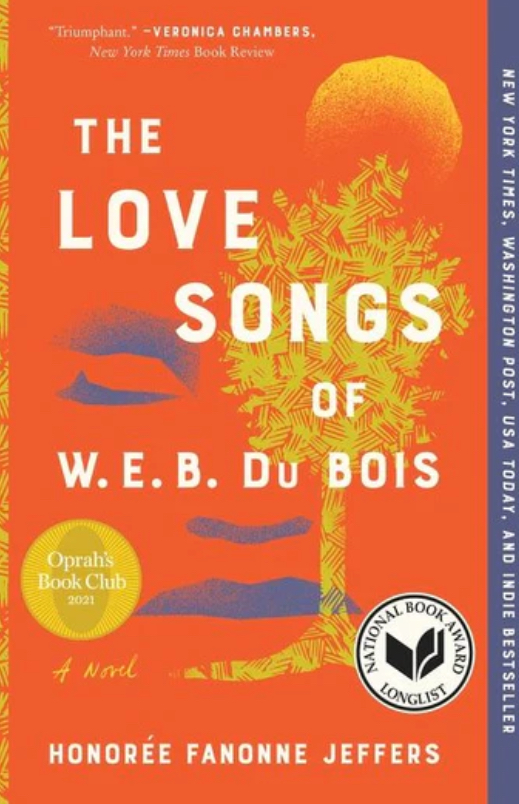
Amazing, multi-generational epic novel set in Georgia, USA. I had to take a deep breath to embark on this 800-page tome, but found it difficult to put down once I started.
The story moves backwards and forwards in time between the life of Ailey, exploring and discovering her identity and family history, and the many generations of her ancestors, some of whom arrived in bondage from Africa, some indigenous Americans, some white settlers.
A wonderful weaving of stories, some tragic, some triumphant, all gripping.
Cal Flynn – Islands of Abandonment
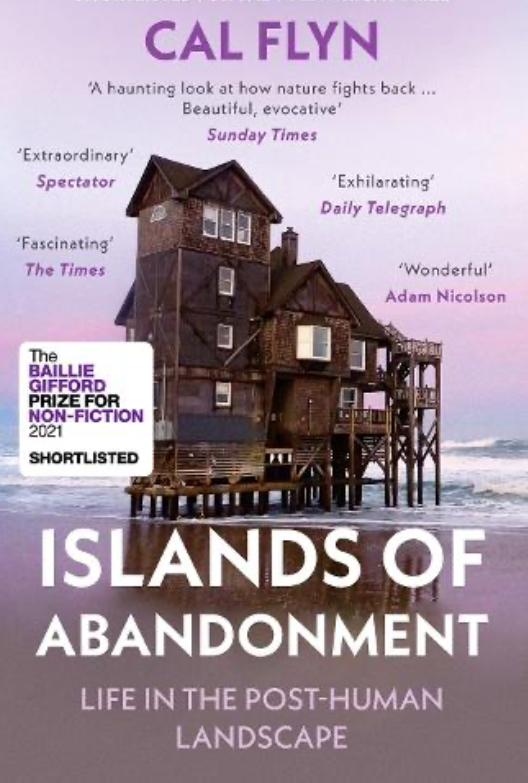
This book is soooooo right up my alley – it’s about abandoned (by humans) spaces that nature has begun to reclaim, moving from Chernobyl’s surroundings, through former war zones, abandoned formerly thriving industrial cities of the US, to a Scottish island roamed by feral cattle left by humans in the 1970s.
As Flynn says “when a place has been altered beyond recognition and all hope seems lost, it might still hold the potential for life of another kind”. Beautifully written, there’s also an audiobook version read by Flynn, who hails from the Scottish Highlands.
Harry Josephine Giles – Deep Wheel Orcadia
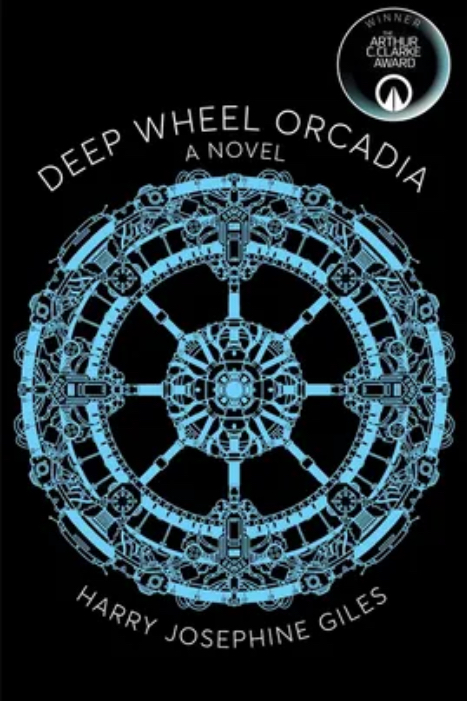
This is like no other book I’ve read EVER, never mind this year.
It’s a sci-fi novel, about finding home, set on a space station – written in verse, in Orcadian (the Orkney dialect). It has a parallel translation into English to help those of us who aren’t familiar with Orcadian dialect words.
Sounds demanding? Give it a go – it’s entertaining as a well as a mind-stretch.
Betsy Whyte – The Yellow on the Broom
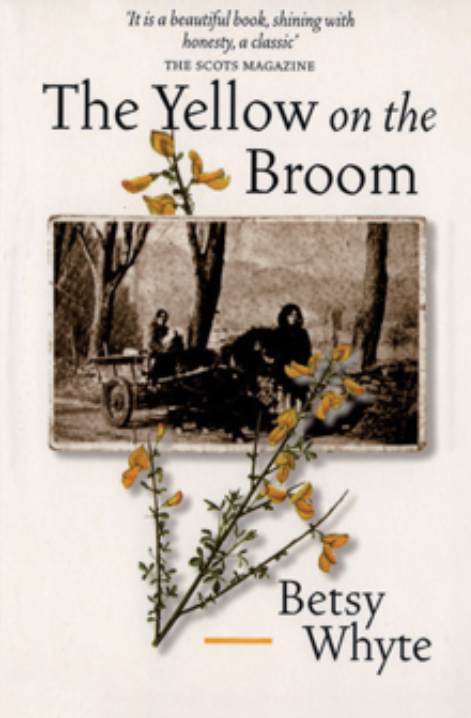
This was a recommendation from someone responding to a Facebook post I made about the persecution of Travellers in Scotland (which included attempts to ‘educate children out of their nomadic ways’ in the twentieth century).
It’s a wonderful autobiography of Whyte’s childhood as a traveller in Scotland in the 1920s/30s. As well as being a great first-person insight into the life and customs of travellers at that time, it’s also a fascinating snapshot of wider society during that time, including how other people viewed travellers.
Aldous Huxley – Brave New World
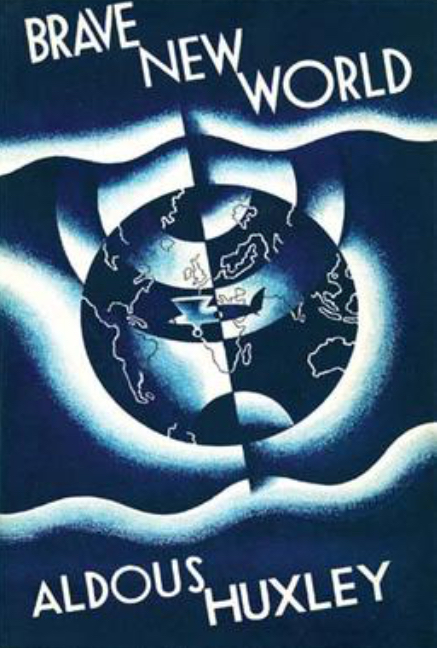
I’m not sure how I’ve only just read this 20th century classic for the first time. It’s set in a dystopian future where emotions and individuality are conditioned out of people at a young age, and embryos are engineered to develop in such a way that they fulfil different classes in society from ‘Alphas’ (the leaders, intellectuals) to ‘Epsilons’ (the labourers).
I found it really interesting to read this book almost 100 years after it was written, noticing the echoes of the idea that things can be engineered to make us happy in our consumer-focused society today – ‘distract yourself from your natural feelings by buying happiness’.
Britannica.com says ‘Much of the anxiety that drives Brave New World can be traced to a widespread belief in the 1920s in technology as a futuristic remedy for problems caused by disease and war’….. unnervingly reminiscent of the way many people today cling to the desperate hope that technology will somehow rescue us from environmental collapse.
Janey Godley – Handstands in the Dark
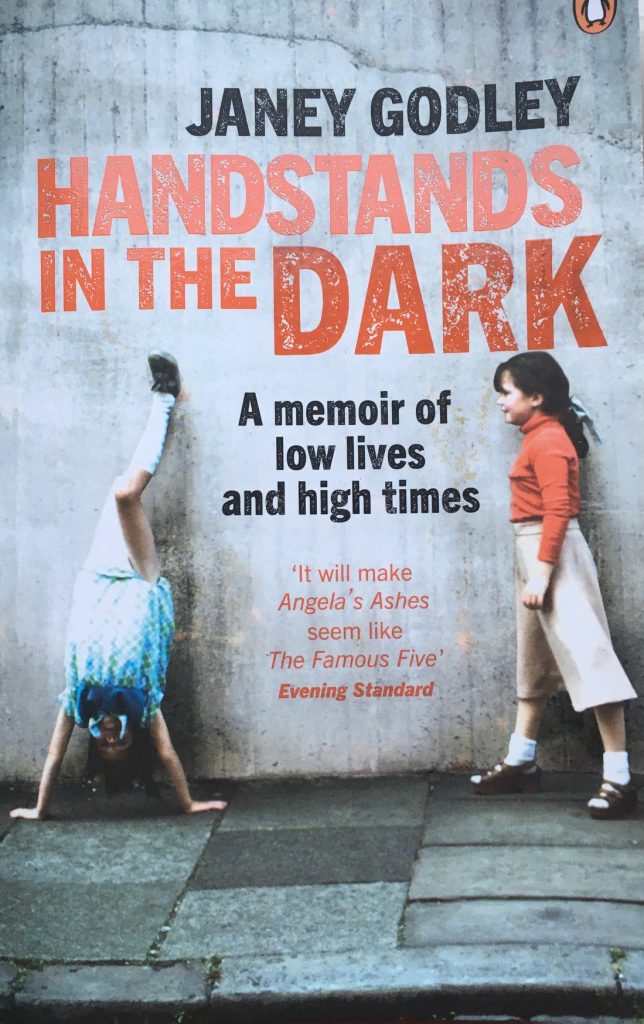
Janey Godley first won a place in my heart in 2018 when I saw the wonderful photograph of her protesting at Donald Trump’s golf course with a placard reading ‘Trump is a cunt’.
She then made it to National Treasure status during the pandemic with her hilarious yet informative voiceovers of Nicola Sturgeon’s daily public Covid briefings (which Sturgeon herself appreciated).
I bought this, the first volume of her autobiography earlier in the year when I went to see her ‘Not dead yet’ show. It’s dry, funny and heartbreaking. While not an ‘easy read’ because of the trauma and tragedy it covers (shooting up in the room where your relative’s coffin is laid out, anyone?), it’s gripping and entertaining too.
Amy Liptrot – The Outrun
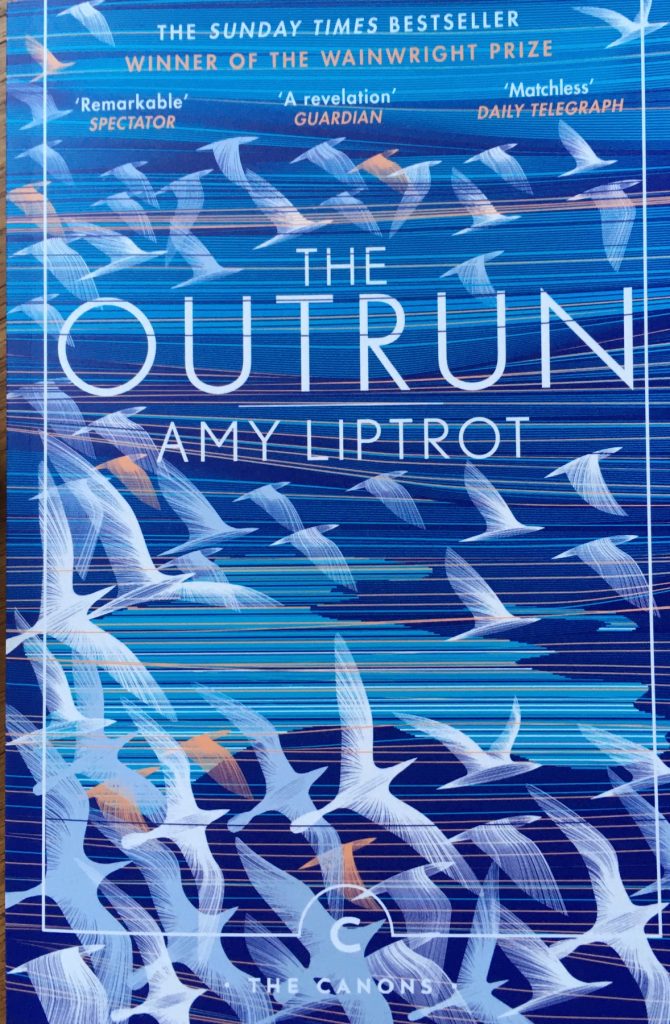
Another recommendation via Facebook – and another autobiography. Amy Liptrot was born in Orkney and escaped from a complicated family situation to the bright lights of London. After reaching rock bottom in her struggles with alcohol addiction, she returns to Orkney to try and recover, ultimately retreating to Papa Westray – “Britain is an island off Europe, Orkney is an island off Britain, Westray is an island off Orkney, Papay is an island off Westray…”
These are the bare bones of the story but don’t capture the beautiful writing of the book, the way she captures both the descent into alcoholic hell, and the wild and bleak Orkney winter. She is brutally honest and exposing of her pain and struggles.
Ali Smith – Seasonal Quartet
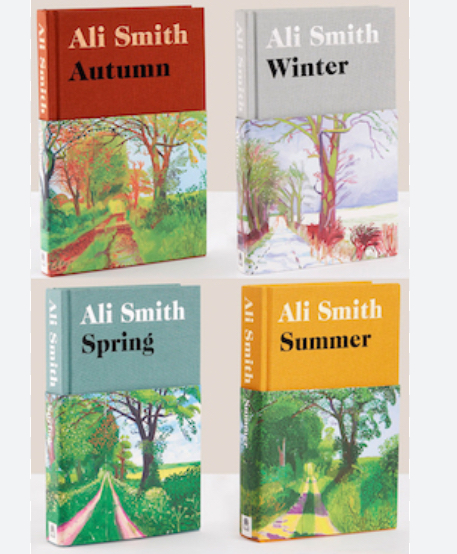
Is it cheating to have four books as one choice? Ali Smith had the idea to write a sequence of books, each dealing with a season, written as quickly as possible, and published as quickly as possible, to be as comtemporaneous as possible.
The book covers (which feature the same view painted by David Hockney during different seasons) were designed before the first manuscript had even been completed (see Ali Smith’s Seasonal Quartet: an oral history (penguin.co.uk) )
It just so happened that the period over which she was writing the books took in Brexit, the ramping up of anti-immigrant rhetoric, the Grenfell Tower tragedy, the Covid pandemic and the increased awareness of the Black Lives Matter movement. They tell separate stories but are also inter-connected. As I read each one, there would be at least one point where I would say aloud ‘what the hell is going on?’ but I never wanted to stop reading. They’re written with a really light touch and were a particular welcome change whenever I’d finished a book that was rather intense or heavy.
Dr Devon Price – Unmasking Autism (The power of embracing our hidden neurodiversity)
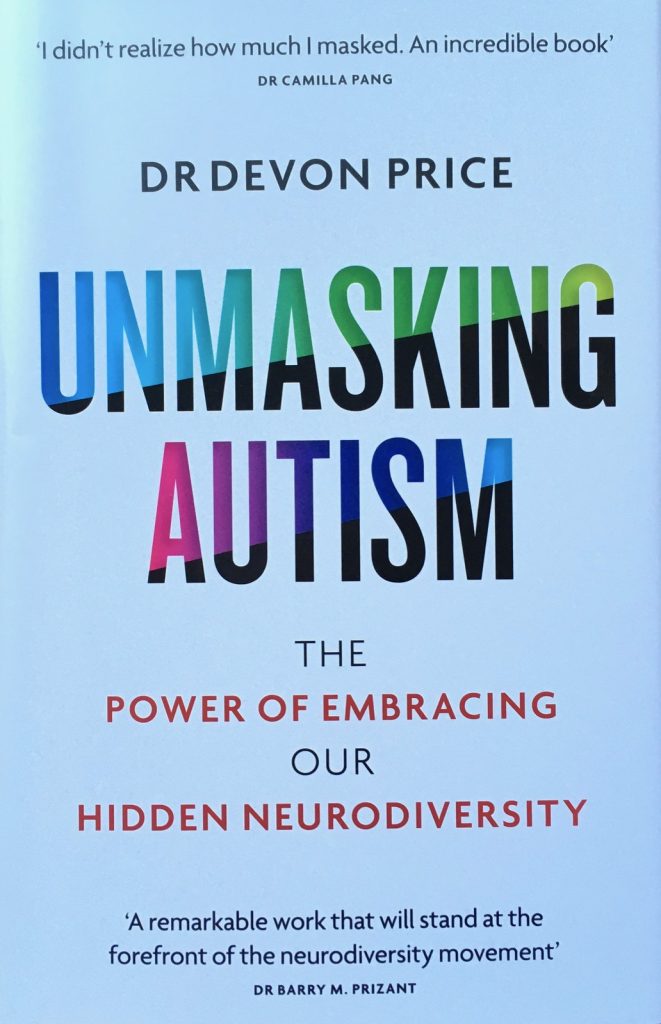
Just brilliant. I’ve recommended this to a number of clients. It’s also a great read for any allistics (neurotypicals) wanting to better understand the autistic experience, or for anyone who feels that they have to hide aspects of themselves – for whatever reason – to be safe or accepted in society.
Dr Price has written a super-accessible book that includes up to date research and personal insights, examining the phenomenon of masking. It’s a passionate rallying cry for the right to be authentic and to resist conformity, and for a society where everyone can be themselves and be allowed to thrive.
And it’s just a really good read.
Lisa Allen-Agostini – The Bread the Devil Knead
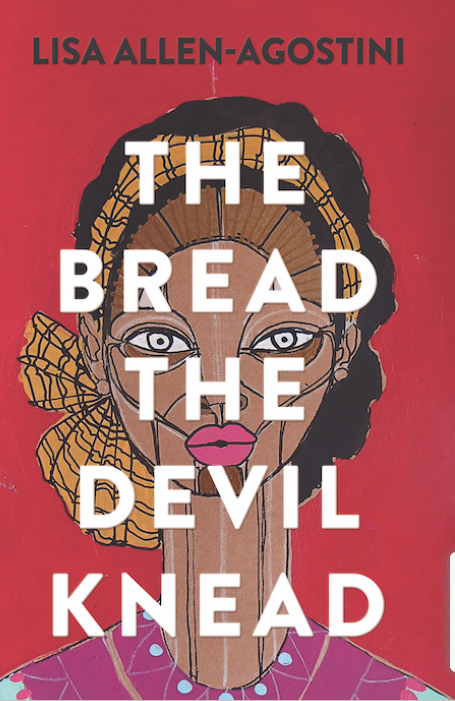
I was in the library one day and my partner dropped this in my hands and said ‘this looks like your sort of book’.
It was shortlisted for the Women’s Prize for Fiction in 2022. It’s a fast-paced, gripping read with a great central character – a 40-yr-old woman who manages a boutique in Port of Spain (Trinidad). She doesn’t fit the typical image of a feminist but absolutely is her own woman (hurrah for pulling down stereotypes!).
Be warned – it tackles domestic abuse, rape and racism in an unsparing, matter-of-fact way. One thing I loved about it was the Trinidadian creole voice that it’s written in, which I hadn’t encountered before – although easy to read, I really enjoyed that there were some words I didn’t know and (if I couldn’t figure it out) I just had to accept that!
Jenni Fagan – The Panopticon
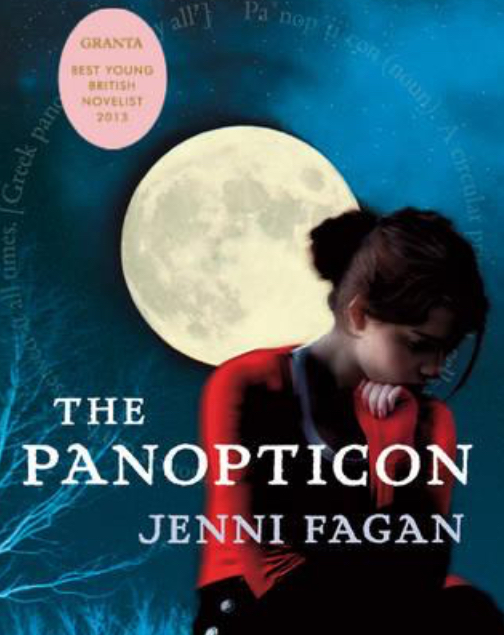
Like ‘The Bread the Devil Knead’, the central character in ‘The Panopticon’ is a unique, unusual (to me) voice. Panopticons were prisons designed to provide constant visibility of all inmates. The one in this book is an institute for adolescent offenders somewhere in central Scotland. The narrator is 15-year-old Anais, who has already had to deal with an awful lot of shit in her short life, including the death of the one foster-mother who she seems to have formed a bond with.
Jenni Fagan herself grew up in local authority care in Scotland, having 29 different placements in her first 16 years before living in homeless accommodation. Her experience may well contribute to Anais’s believable voice.
Anais is in no way a victim; instead she’s a fierce, tough survivor who simply won’t let you pity her. I couldn’t help feeling sorry that she’d had so little love in her life. An amazing, tragic, read.
Frances Quinn – That Bonesetter Woman
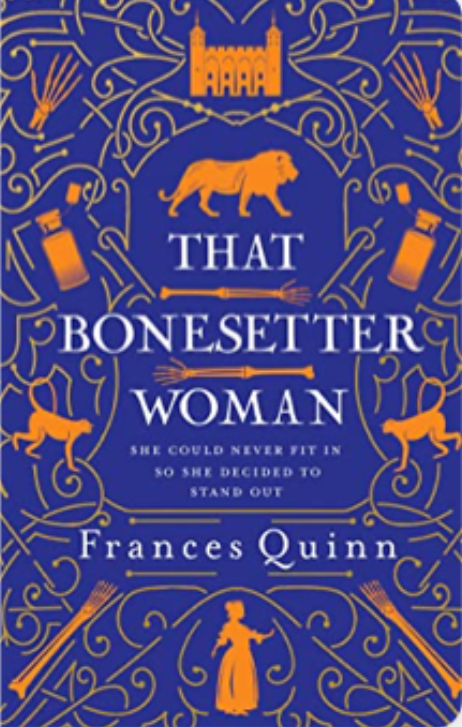
A random pick off the library shelf; I was attracted by the odd title.
The woman in question, Endurance Proudfoot, is based on a real woman who became a bonesetter in Georgian England. Endurance is clumsy, strong and plain-spoken. Even thought her bonesetter father believes it’s not a job for a woman, she’s determined, and eventually makes her way to the career that she wants.
Needless to say, an independent woman isn’t given an easy time of it in the man’s world of 18th century London. Endurance needs every ounce of courage and strength she has. A real page-turner with some fantastic characters.
Daisy Johnson – Fen
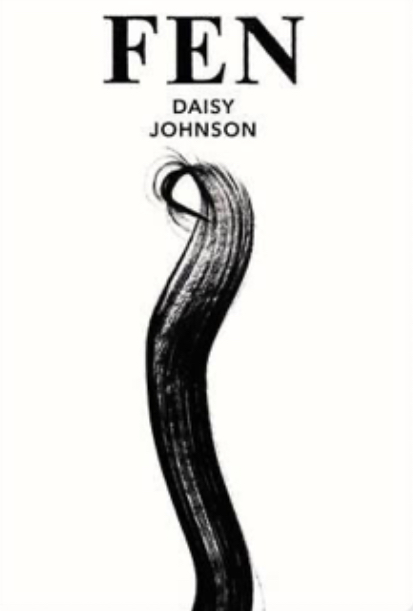
I don’t know if you’ve read any Daisy Johnson, but she is hands-down the most watery writer I’ve come across.
I gradually realised, as I was partway through this collection of short stories set in the Fens, that I’d read another book of hers. ‘Everything Under’, which is set partly on a canal boat, has a similarly muddy, watery feel to it. My list of books read has a note in brackets after ‘Fen’ that says ‘eerie, bonkers’.
Many of the (human) characters in the stories seem to have something of the flooded fens in their nature. It’s as if they haven’t long emerged from the wetlands themselves. There are strains of myth and folklore that weave through the tales – an uncanny and mysterious gathering of stories.
Natasha Pulley – The Bedlam Stacks
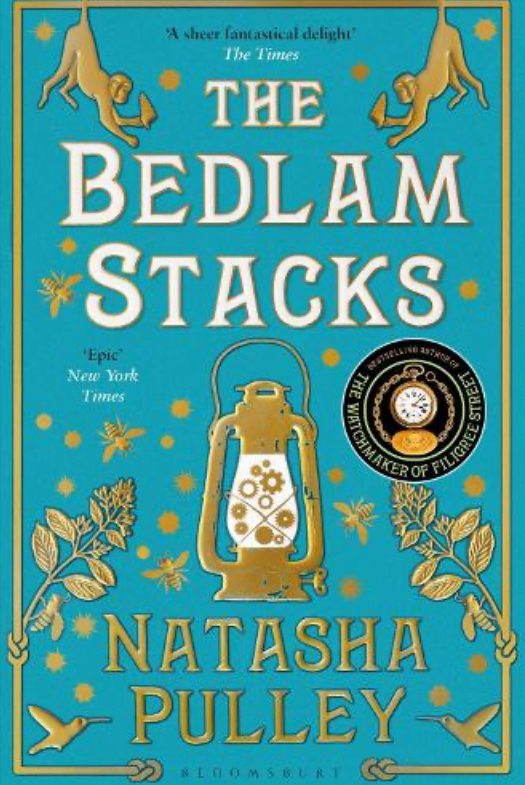
I bloody love Natasha Pulley. I mean, my first introduction to her included a clockwork octopus in ‘The Watchmaker of Filigree Street’ – what’s not to like?
This book, also set in the late 1800s, is similarly wistful, quirky, full of adventure and with a host of fascinating inhabitants. The main character is recruited by the India Office to search out a source of quinine in Peru. In the process he discovers an almost-impossible village at the edge of the Amazon, a mysterious priest, and various characters who are woven around with myth and magical qualities.
Infused with love and melancholy, this is a perfect read to lose yourself in over a long, dark, midwinter weekend.
If you’ve enjoyed reading about this (pretty much uncurated, random) collection of books you might like to check out my 2022 favourite book list here, and my blog about how reading books can make your life better.
